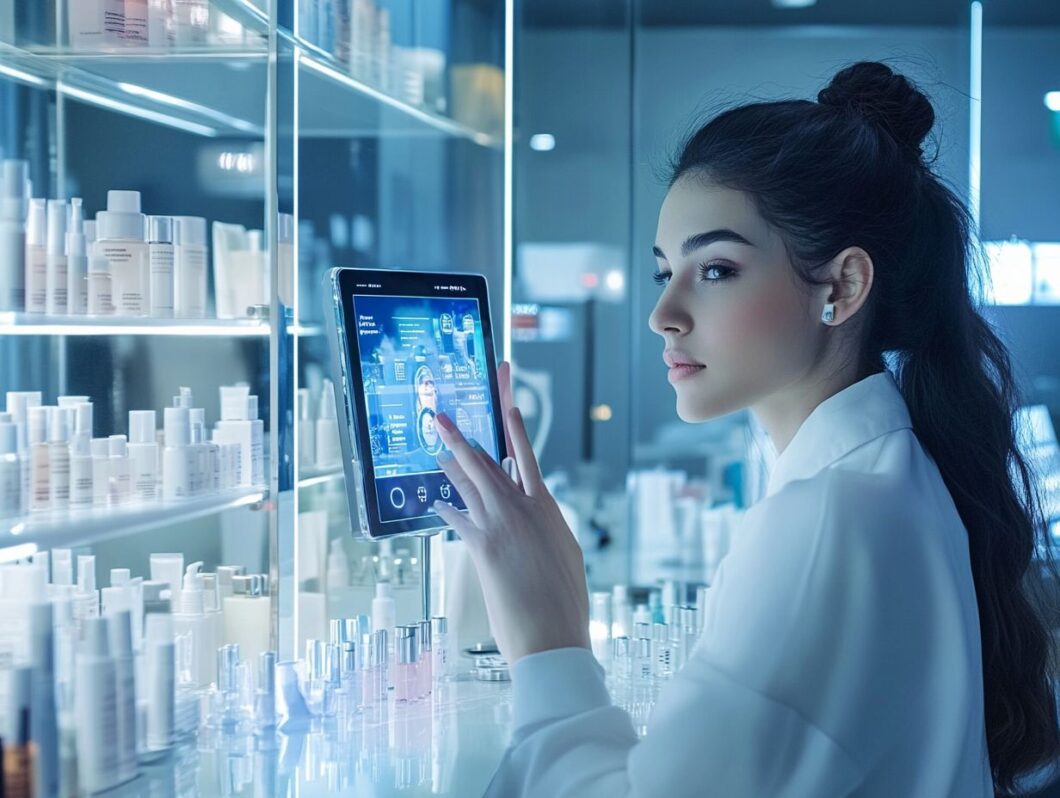The beauty industry is currently experiencing a significant transformation, driven by rapid advancements in technology. From personalized skincare recommendations to innovative makeup solutions, beauty tech is fundamentally reshaping how I approach my beauty routines, reflecting prevalent beauty trends. In this article, I will explore the dynamic landscape of beauty tech, examining the role of technology in creating tailored experiences, informed by consumer values. I will also discuss the benefits and potential concerns associated with these innovations, as well as what the future may hold for this exciting industry. Prepare to discover how you can enhance your beauty regimen with cutting-edge technology.
Key Takeaways:
The Rise of Beauty Tech
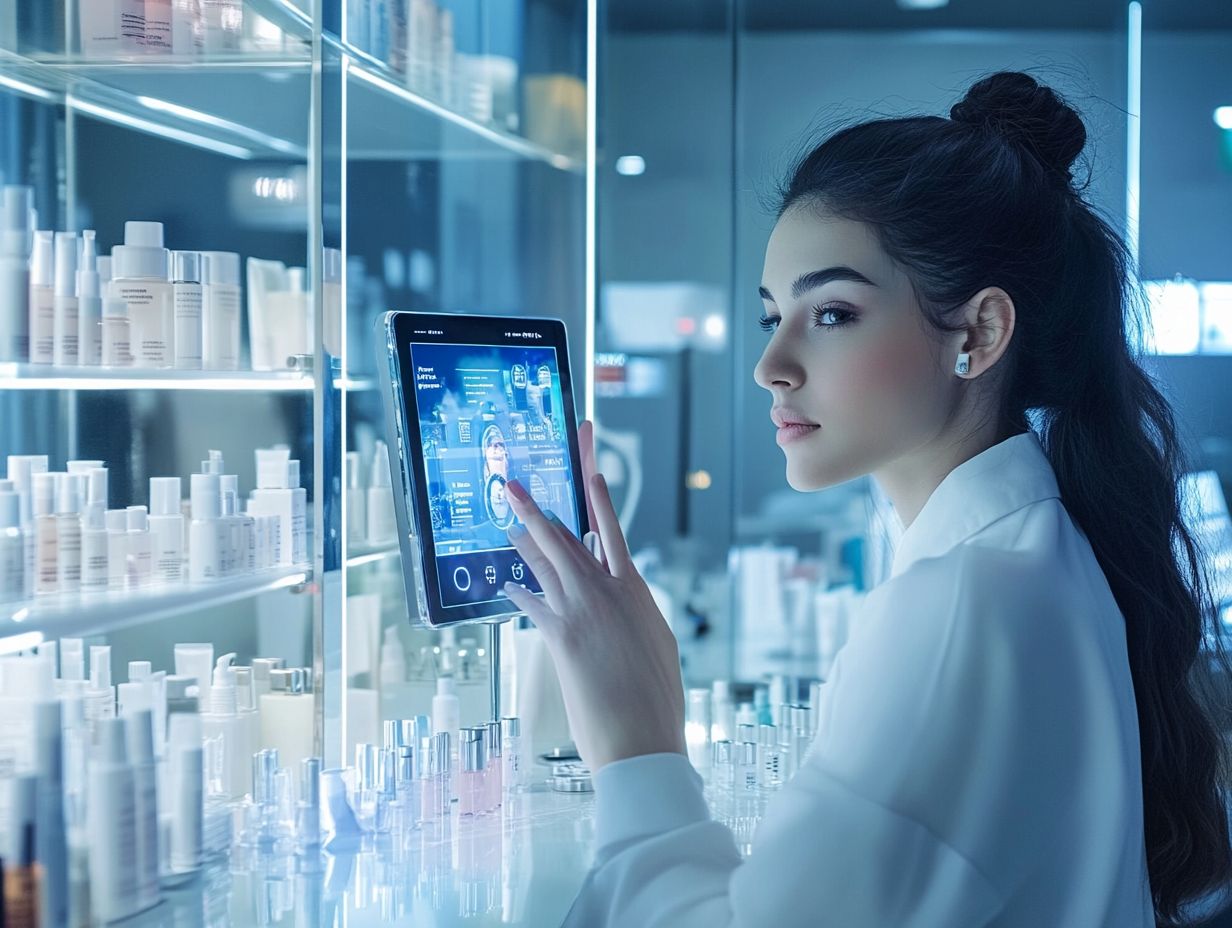
The rise of beauty tech is significantly transforming the beauty industry, influenced by artificial intelligence, as I observe companies increasingly integrating advanced technologies such as artificial intelligence and data analytics into their product offerings to meet the evolving needs of beauty consumers.
Innovations in this sector are not only enhancing customer experiences but also aligning with sustainable beauty trends, emphasizing clean ingredients, which emphasize the importance of clean ingredients and eco-friendly options.
As brands like L’Oral and Nykaa leverage beauty technology, I recognize that focusing on personalized skincare and customer profiling through market research is essential for attracting and retaining a modern consumer base that is eager for hyper-personalized solutions. For those interested in a comprehensive overview, this analysis by McKinsey covers the full spectrum of implications.
How AI is Changing the Beauty Industry
Artificial intelligence is transforming the beauty industry by enableing brands to leverage consumer profiling and skincare analysis for improved product recommendations and brand tracking.
This evolution enables beauty companies to address a wide range of consumer preferences, integrating advanced skincare analysis, enhancing their inclusive marketing strategies.
By utilizing AI technologies, brands such as Tatcha and Sephora are creating innovative beauty products that effectively meet the unique needs of their customers while fostering a stronger connection with contemporary beauty consumers. According to a recent publication by McKinsey, the real value of AI in consumer packaged goods (CPG) is evident in how these brands are using AI to drive transformation.
Application of AI in Skincare and Makeup
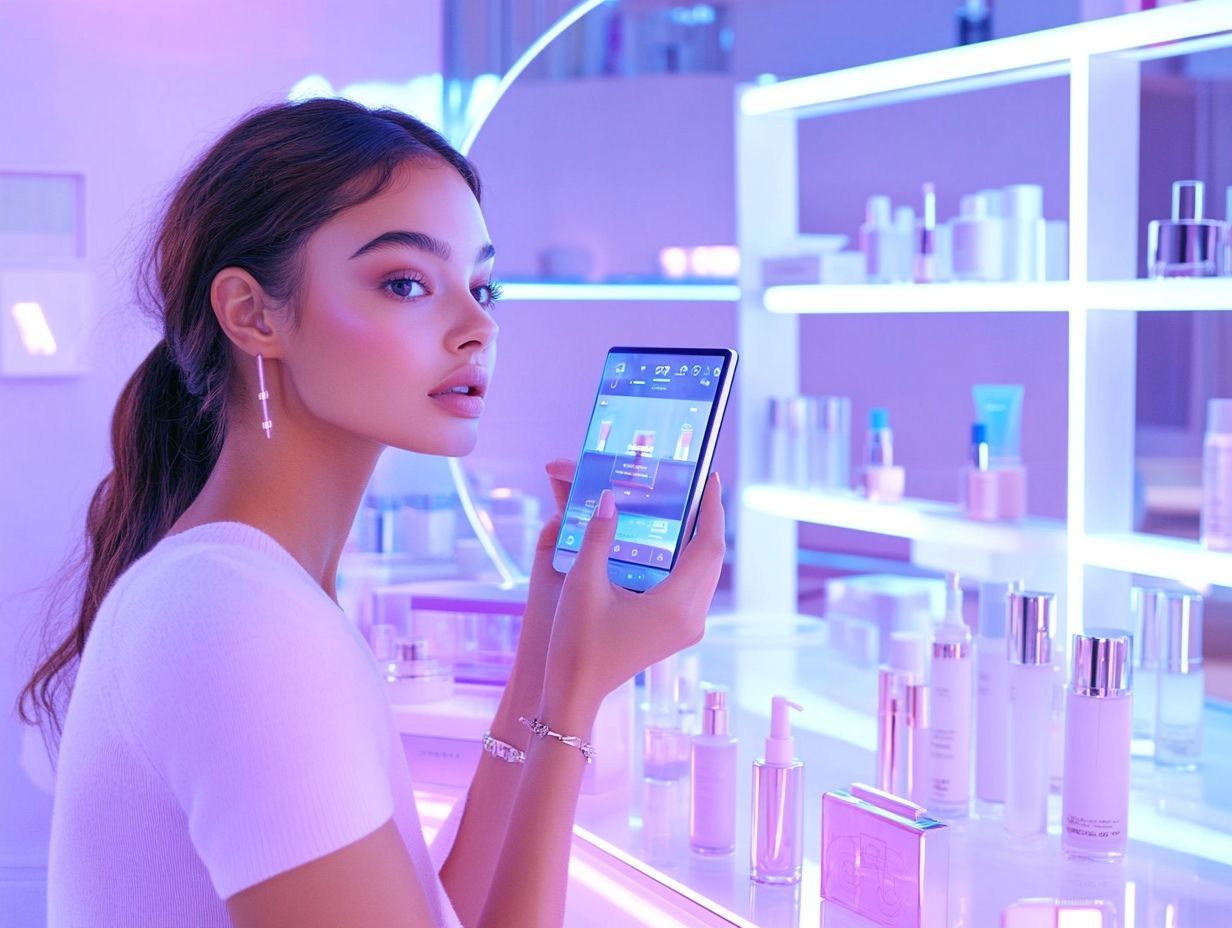
The application of artificial intelligence in skincare and makeup is significantly enhancing the way beauty brands engage with consumers, providing tailored solutions that cater to individual needs and preferences. I have observed that AI-driven tools can analyze skin conditions, suggest personalized skincare routines, leveraging eco-friendly options, and even enable virtual makeup trials, simplifying the process for consumers to identify suitable products.
Consequently, more brands are adopting beauty technology to improve customer engagement and satisfaction, enhancing the beauty tech market.
This integration of AI is transforming the beauty landscape, with pioneering brands like Haut.AI and SmartSKN at the forefront. These companies leverage sophisticated algorithms to assess various skin parameters, allowing consumers to receive customized recommendations that align with their unique requirements.
The capability to visualize makeup looks virtually eliminates the uncertainty often associated with purchasing beauty products online, driven by innovations in personal care products. As consumers increasingly embrace these intelligent solutions, it is evident that their buying habits will evolve, marking the beginning of an era where technology-driven personalization becomes standard practice.
The future presents exciting possibilities, with the potential for even more advanced AI innovations to revolutionize how individuals discover and interact with beauty products.
The Benefits of AI-Powered Beauty Products
AI-powered beauty products provide a range of benefits, particularly in enhancing efficiency and personalization for consumers who are seeking tailored solutions for their skincare and beauty needs.
By utilizing advanced algorithms and data analytics, I can develop products that address individual preferences and skin types, leveraging natural ingredients, aligning with modern consumer values centered around personalized and effective beauty solutions.
This approach not only improves customer satisfaction but also cultivates deeper brand loyalty among beauty consumers and Gen Z who are eager for innovative and effective products. Some experts at Forbes highlight the growing trend of product personalization as a key driver in meeting these demands.
Efficiency and Personalization
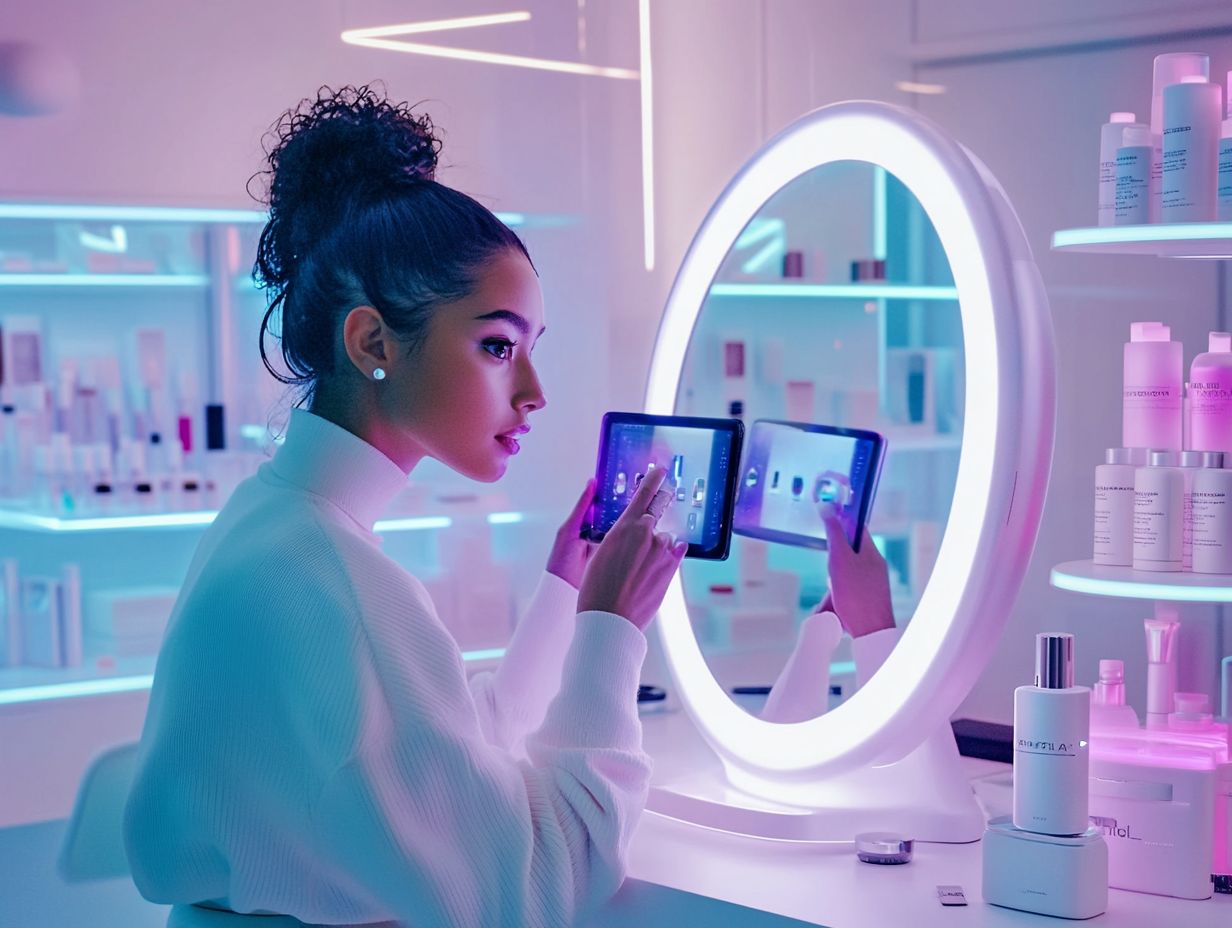
Efficiency and personalization are essential elements in the development of AI-powered beauty products, allowing me to respond swiftly to changing consumer preferences while offering tailored solutions. By leveraging machine learning algorithms and analyzing consumer data, enhancing social media integration, I can streamline product offerings and enhance the customer experience, ensuring that each beauty consumer receives recommendations that are relevant to their unique needs.
This innovative approach is exemplified by companies like L’Oral, which utilizes AI to analyze extensive data from social media and customer interactions, personalizing product suggestions based on individual skin types and preferences.
Additionally, brands such as Este Lauder have embraced virtual try-on technologies, using augmented reality to enable customers to visualize how products will look on them prior to making a purchase.
The capability to analyze consumer behavior and preferences not only improves user satisfaction but also fosters brand loyalty, as consumers feel a stronger connection to products that cater to their specific needs.
Potential Concerns and Controversies
As I observe the beauty industry embracing artificial intelligence, I recognize that potential concerns and controversies regarding data privacy and ethics are becoming increasingly prominent.
With brands utilizing consumer profiling and extensive data collection methods, supported by Attest brand tracking, to enhance their marketing and product development strategies, important questions arise about the protection of consumer information and the ethical implications of such technology.
Navigating these challenges is essential for maintaining consumer trust in a rapidly evolving beauty tech landscape.
Data Privacy and Ethics
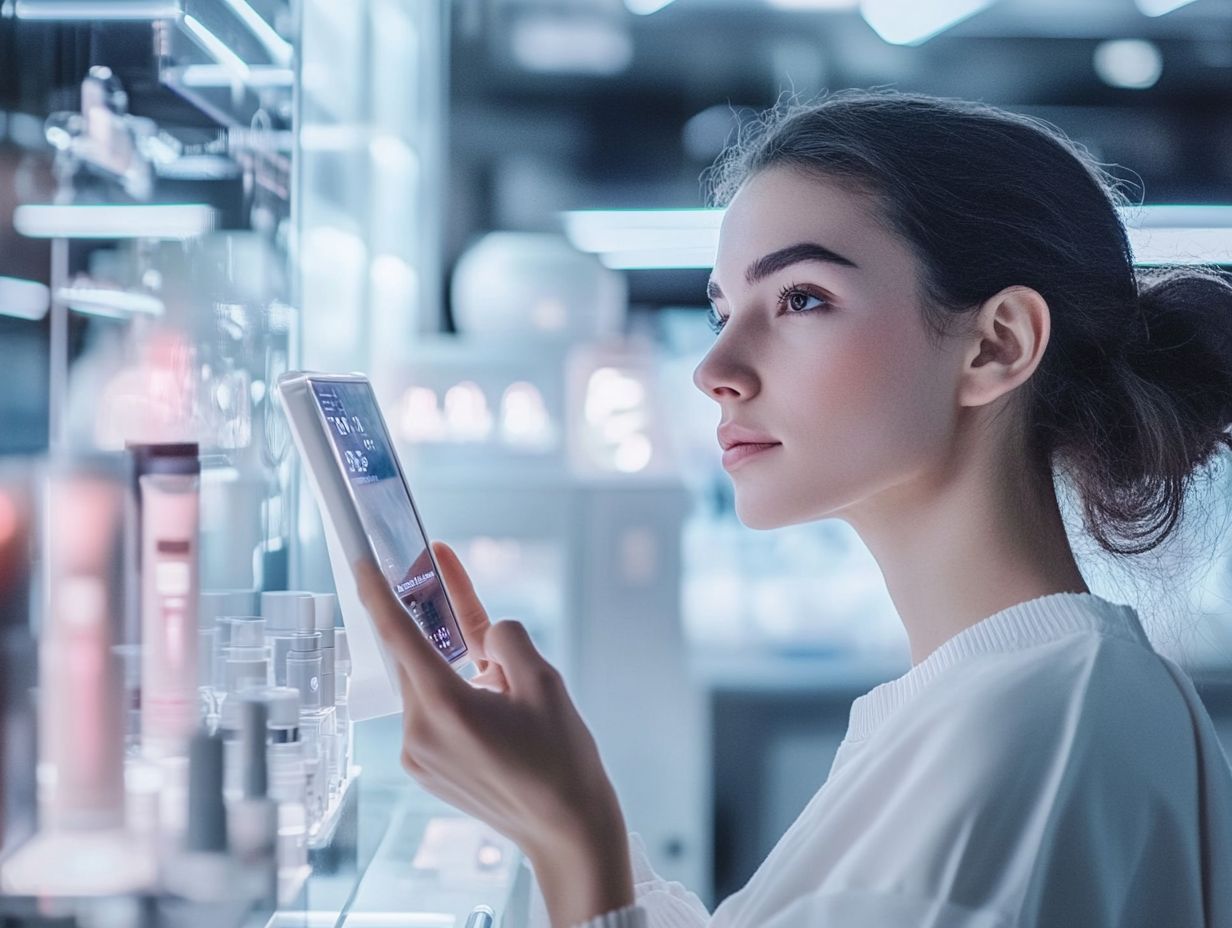
Data privacy and ethics are crucial topics in the realm of artificial intelligence, especially as beauty consumers become increasingly aware of how their information is collected and utilized. It is imperative for me to understand the boundaries of ethical consumer profiling to maintain transparency and trust in my relationships with customers. As the beauty industry continues to evolve, addressing these concerns will be vital for achieving sustainable growth, particularly in the clean beauty movement.
I recognize that brands prioritizing transparent data practices can cultivate a stronger connection with their audience. For example, by informing consumers about what data is collected and how it will be used, I can foster an environment of trust.
Additionally, implementing robust data protection measures, such as encryption and limited access, not only safeguards personal information but also reflects a commitment to ethical practices. Engaging consumers through surveys or feedback sessions allows them to voice their concerns and preferences, further reinforcing trust.
By establishing a comprehensive ethical framework, I can navigate the complexities of data privacy while enhancing my brand’s reputation and ensuring long-lasting customer loyalty.
The Future of Beauty Tech
The future of beauty tech holds significant promise with advancements and innovations poised to further transform the beauty industry.
I anticipate a growing integration of artificial intelligence and advanced data analytics to enhance customer experiences and inclusive marketing strategies. As consumer trends increasingly favor personalization and sustainability, it is crucial for brands to adapt swiftly by leveraging emerging technologies to maintain their competitive edge and relevance in this rapidly evolving landscape.
The intersection of beauty technology and consumer demands will undoubtedly shape the next phase of the beauty industry.
Predictions for 2025 and Beyond
Predictions for 2025 and beyond suggest that beauty tech will continue to evolve, with a significant emphasis on consumer values related to sustainability and personalization. As I observe beauty consumers increasingly prioritizing eco-friendly options and clean ingredients, it becomes clear that brands will need to adapt their strategies to meet these expectations.
This adaptation will involve leveraging advanced technology to enhance product development and foster better customer relationships. This shift is poised to have a substantial impact on the beauty industry’s landscape as we move forward.
With the rise of innovative formulations that minimize environmental impact and the adoption of biodegradable packaging, central to the sustainable beauty market, I anticipate a surge in products that balance both functionality and sustainability.
Additionally, advancements in AI and augmented reality are expected to transform, with Coty and Perfect Corp leading the way, how consumers engage with beauty brands, allowing for personalized experiences in product selection and application techniques.
As consumers seek transparency and authentic connections with brands, I foresee marketing strategies increasingly relying on storytelling that highlights ethical practices and community involvement. This approach will ultimately influence purchasing decisions and foster brand loyalty among consumers.
How to Incorporate Beauty Tech into Your Routine, including insights from Nykaa, L’Oral, Haut.AI, SmartSKN, Tatcha, and Sephora
Incorporating beauty technology into my routine has significantly enhanced my skincare and makeup experiences, especially with the emergence of AI-powered beauty products tailored to individual needs, embracing hyper-personalization for better customer preferences.
By embracing technology-driven solutions, such as personalized skincare analysis and virtual makeup trials, I can make more informed choices and achieve better results in my daily beauty regimen, offering customer assistance that caters to Gen Z preferences.
Adopting these innovations not only simplifies the process but also aligns with the current trends in the beauty industry, with brands like Nykaa, L’Oral, and Coty leading the charge.
Tips for Using AI-Powered Beauty Products
When utilizing AI-powered beauty products, it is essential to adhere to specific guidelines that can maximize their effectiveness and enhance my skincare routine. By understanding how these technologies operate and aligning them with my beauty goals, I can achieve better outcomes and greater satisfaction with my product selections.
Applying these principles allows me to fully leverage the innovations offered by beauty technology.
To start, assessing my skin type is crucial. I can accomplish this through online quizzes or by consulting beauty professionals who use AI to analyze my skin’s unique characteristics.
Once I have a clear understanding of my skin type, interpreting the AI recommendations becomes much more straightforward. I focus on products that specifically address my needs, whether that involves hydration, anti-aging, or managing blemishes.
Incorporating these products into my daily routine requires consistency, so I make it a point to create a skincare schedule that fits my lifestyle.
It is important to remember that beauty tech should feel personal; I am not hesitant to adjust AI suggestions to suit my individual preferences, ensuring that my skincare practices remain both effective and enjoyable.


